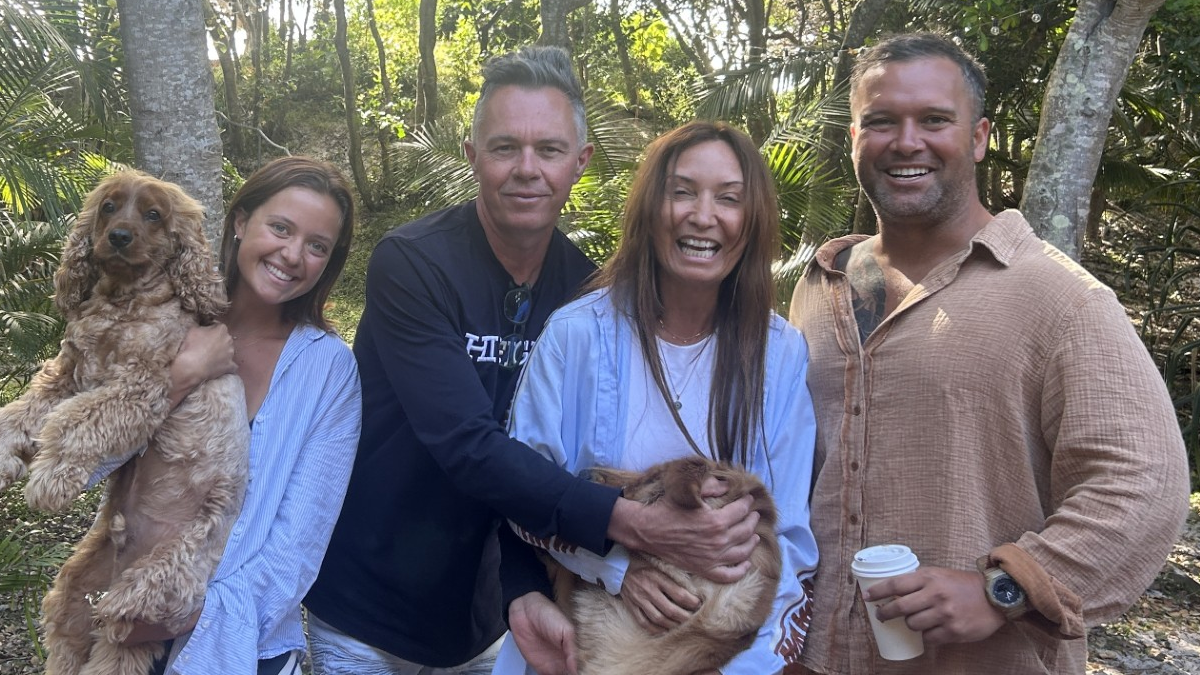
UNSW Medicine & Health's Deputy Dean Indigenous has developed First Nations-led mental health models of care, earning global recognition for her culturally integrated approach.
Professor Maree Toombs' trajectory from high school dropout to internationally recognised mental health researcher began with an act of loving deception. Her grandmother and aunty, armed with the promise of scones with jam and cream, orchestrated what would prove to be a life-changing intervention. They enrolled her in an Indigenous Gateway program at the University of Southern Queensland (USQ).
The proud Euahlayi/Kooma woman is now one of Australia's foremost experts on Indigenous mental health, having revolutionised suicide prevention training, now adopted internationally. In 2023, she received the Australian Mental Health Prize for her leadership in culturally safe healthcare practices.
Currently UNSW Medicine & Health's Deputy Dean Indigenous, Maree represents the Blakcademy, a collective of First Nations academics and professional staff. She is also leading the development of an Aboriginal and Torres Strait Islander Health and Wellbeing Unit across the faculty.
"I've been fortunate to have had great mentors who believed in me and showed me the sky is the limit," Maree said. “This has, in turn, ignited my passion for lifting others, creating new pathways and ensuring First Nations peoples I encounter know their potential is limitless.”
A foundation built on resilience
Maree's early life was marked by both adventure and adversity. From Goodooga, a northern NSW town close to the Queensland border, she spent her formative years travelling across Australia with her family in a bright orange caravan. Her carefree childhood ended abruptly when her mother developed mental illness, forcing the family to settle in Cootamundra.
The location proved particularly significant. Living close to the site of the former Cootamundra Domestic Training Home for Aboriginal Girls – an institution intrinsically linked to the Stolen Generations – Maree grappled with questions of identity while experiencing the weight of generational trauma in the town.
When she left high school, academic pursuits took a backseat and Maree worked in low-paying positions throughout her early 20s. Her life's direction shifted when she commenced the USQ Gateway program, an experience that kindled a lifelong commitment to improving retention rates for Aboriginal students. Of 28 students who enrolled in the program, only two completed – and Maree was one of them.
Transforming educational outcomes
Maree's own experience with academic isolation informed her career. Returning to USQ as director of the Gateway program, she implemented a crucial innovation: an off-campus retreat designed to foster connection among incoming students. This seemingly modest intervention yielded extraordinary results, with retention rates soaring from 20% to 95%.
"I realised the poor retention rates for First Nations students had a lot to do with our culture – the village raises the child," Maree said. "As a new university student, you transition from extensive support networks to feeling isolated. This is particularly challenging because we're a collective society, so retention success depends on how students connect with and support each other."
Community-centred research
Maree's research methodology reflects her deep understanding of First Nations cultural values. Her work interfaces with community needs, allowing relationships and trust to build through "yarning with mob" – engaging directly with communities to understand their health priorities.
Her research also has profound personal significance. Her mother's bipolar diagnosis when she was seven years old shaped her understanding of mental illness and reinforced her commitment to improving Indigenous mental health care access and quality.
Maree has pioneered new approaches to Indigenous mental health research, including the development of the Indigenous-Applied Suicide Intervention Skills Training (I-ASIST) suicide intervention program. Implemented nationally and globally recognised, the initiative has trained more than 10,000 Indigenous Australians in evidence-based suicide intervention techniques. It represents the only national gold-standard program of its kind, integrating Indigenous perspectives that attribute mental health to spiritual wellbeing.
Currently trained I-ASIST facilitators implement the methodology across more than 100 Indigenous communities. Key innovations include a mobile application and online platform providing ongoing peer support resources, technological components designed to sustain training impact over extended periods.
"Through dedicated funding and meaningful action, we can reshape the landscape of Indigenous mental health," Maree said. "Real change requires investing in culturally attuned practices and collaborative care."
One of the National Health and Medical Research Council (NHMRC) projects Maree led on Indigenous mental health and suicide prevention has proved so successful it has been replicated in Canada. Her research has found that Indigenous adults experience common mental disorders at 6.7 times the national rate, findings that have informed collaborative models of care integrating traditional healing practices with clinical treatment and precision medicine across Australian communities.
Maree's approach fundamentally challenges traditional research paradigms. Her work exemplifies participatory methodology that prioritises community ownership and self-determination.
"I do research for the community, not to the community," she said. "We're healing our past and forging a healthier future together."
What’s the best advice you’ve received?
My grandmother always told me that education is important.
What might surprise your colleagues?
I have my rigid truck driver's licence.
What makes you happy?
My family and our Cocker Spaniel, Ollie Brown.
What day in your life would you like to relive?
My wedding day. We had a wedding for everyone else rather than ourselves, and it was stressful. I’d like to do it again just for us.
What’s the best thing you’ve read in the last year?
The Let Them Theory by Mel Robbins.
- Log in to post comments
